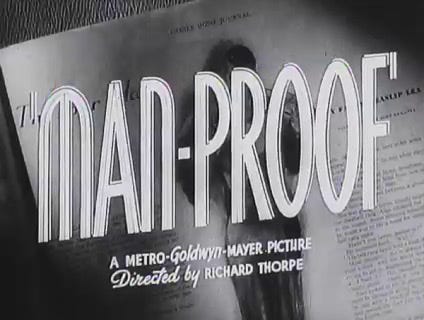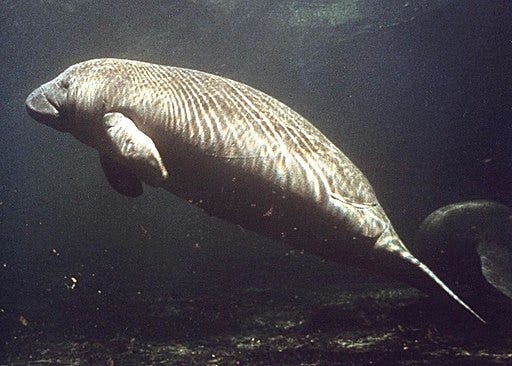Feake Hills, Crooked Waters - That Ancient-Time Religion
Artificial intelligence is, for sure, the ‘it girl’ of the day. A bunch of people who are richer than everybody else (which leads them to assume they must be smarter than everybody else) are warning that AI is out to get us. Other people take a more utilitarian position and point out that AI is going to take away jobs (unless it adds more jobs), change everybody’s job (unless it doesn’t), and change the world — maybe even by “rebooting the operating system of human society,” which is a clickbait headline I saw recently. Clickbait because come on, that doesn’t mean a damn thing. When you reboot your laptop, it usually works better. When I look across all the chatter and claims and speculation, for some reason it looks to me like religion. I mean religion in a very broad sense; the notion that seems almost instinctive in humans to attribute events and feelings to, well, entities. Sometimes the entities are called gods, and sometimes they’re ghosts, spirits, genies, sprites…you know what I mean. Disembodied intelligences. And what, after all, is AI if it’s not a “disembodied intelligence”? We, of course, are “embodied.” That makes a big difference. We’re biological, but intelligent (or at least we like to think so). Being biological, we’re acutely aware of some aspects of being biological that may not be entirely to our liking. It doesn’t happen much any more, but in our evolutionary past, being biological meant that we could get eaten. Even if we evaded that fate, we ourselves need to eat — which even today is not assured for everyone. Not only that, but we have to cope with illness. Our bodies break. We have to deal with pain. We know our lives end. Disembodied intelligences are free from all those concerns — or at least so we imagine. Lots of people are working on each of those problems, by the way, and some are even hoping that they can avoid that last one, death, personally. Ray Kurzweil, for one, takes so many pills and potions every day that it’s hard to believe — all so he’ll stay alive long enough for somebody else to come up with a way for him to stay alive forever. There are others, too — Aubrey de Gray, a researcher who’s trying to reverse aging, has said he thinks the first human who will live to be 1,000 has already been born. Religions have often been about avoiding death, too, or at least redefining it in various ways. The ancient Egyptian pharaohs thought they’d “wake up” in some physical way, and had all their stuff — including servants — buried with them, because if there’s another edition of your life, you won’t want to have to pour your own wine or do your own laundry. They were solidly in the “embodiment” camp, but other religions have tended to go the “disembodied” route where some version of you continues to exist after death, but without a physical form — or if there is some physicality to it, it’s the sort that can’t be detected here and now. Except, you know, occasionally. Some of the people working hard to avoid death think the answer is AI. Sort of. After all, if we can figure out how to run a computer program that passes muster as “intelligent,” then why not house our own intelligence in the same kind of computer? By the way, once you start asking “and how exactly would you put your intelligence into a computer,” the hand-waving begins. Nobody really has the slightest idea. But from a religious point of view, where there are mysteries beyond our understanding, there is a certain sense to this. After all, we are made of matter, but we are not exactly “matter.” We’re patterns. The pattern that is you exists — somehow — in a biological body that changes constantly. It’s made of atoms, but not the same atoms from one day to the next. That’s why you’re “embodied,” instead of being a body. The “upload my mind” contingent of death-defiers knows that a computer program is a pattern in the same way their selves are, so instead of the pattern existing in carbon-based soup, why not have the same pattern exist in silicon-based circuits? It’s a simple question, and shrouded in the same kind of mysteries that surround religions. I’m not religious myself, although I don’t really know why. Some people with very similar lives to mine are. I grew up in a family that belonged to a church, for example, and we behaved in ways that would be described as “religious.” I never asked my parents how deeply that went for them; whether they firmly believed or not. For me, for some reason, there was never any belief at all. Belief is, I think, a central aspect of anything you want to call a religion. Things that we can verify, like how fast objects falling to earth accelerate, or what happens when you mix diet Coke and Mentos candy? Those aren’t religion. It’s the things you can’t check on but embrace anyway that are the realm of religion. The people who invest lots of time and effort into “verifying” religious claims like “finding Noah’s ark” or submitting an artifact like the shroud of Turin to electron microscopy aren’t operating out of religion at all; they’re looking for proof — and as soon as you have proof, it’s not religion any more. Computer programs that use large language models can respond to us in ways that can convince us are “intelligent.” But we may never be able to really prove it. Even the original test developed by Alan Turing to determine whether a computer had human-like awareness and intelligence isn’t really a very reliable sort of proof — it just boils down to “if you’re talking to it and can’t tell whether you’re talking to a human or a machine, it must be intelligent.” But come on, I’ve talked to any number of humans whose responses could just as easily been mechanical — and these have often been in person, so I did have independent proof of their biological embodiment. Maybe that means what we really need is a better test of what it means to be human. I wonder if that’s what Turing was really getting at. Anyway, in the midst of the countless AI discussions, I think what we might be seeing is something different, and maybe even more interesting than just the computer science. It’s an upwelling of religious feeling. Now, if ChatGPT can mimic that too, maybe we’re getting somewhere. Tales from the ForestOne evening, Hortense and Masie the cows were not surprised at all to find their friend Manatee relaxing in the creek that ran through the farm. “Hi Manatee,” said Masie, “I didn’t know you were visiting these parts.” “Oh yesss,” said Manatee slowly, “felt it wass timmmmme for a bit of a vacationnnn, you knowwww. I was overrr in the rrrriverrrr yessterdayyy, and wwwitnesssed the currriousss ssspectacllle of a kayakathon.” “A kayak...athon?” asked Hortense. “Peopllle flock to the rrriverrr with their kayaksss, and paddle arround togetherrr,” explained Manatee in his deep, rumbling voice. “To nnnooo parrticularrr effect that I wasss abllle to discernnnn.” “If they called it an ‘athon’, maybe it was a race, and 26 miles long,” suggested Masie. “A quite rrreasonablllle conjecturrre,” nodded Manatee, “but sadlyyy, incorrect in this instanccce. It was not a racccce, nor was there any particularrrr presscribed dissstancce.” “Sometimes,” said Magpie, who was (as usual) hanging around nearby, “something called an ‘athon’ is for raising money. Were they raising money?” “Unnfortunatelyyyy,” replied Manatee, “I wasss unable to overhearrr sufficient connnnversationnn to confirmmm or denyyy that possibilityyyy.” “What would they be raising money for?” asked Hortense. “Is there something or someone that especially needs some?” “Oh there always is,” said Magpie, “and once they raise money for that thing, they turn around and raise different money for something else. They seem to be at it constantly. It’s a wonder they can keep all the different money separate.” “Ahhhh,” said Manatee, “but moneyy iss fungible, Magpieee. It’sss alllll the sammmme; therre is noo different moneyyyy.” “Fungible?” said Masie. “Does that mean money is made of mushrooms?” “Oh I quite like mushrooms,” said Hortense. “There’s often a lovely patch in the lower field.” “I know,” said Masie, “that’s why I prefer the upper field, or the middle one. Mushrooms are not my favorite.” “Funnngibllle,” said Manatee, “doesss nnot havve to dooo with mushhroommmms, I’mmm sssorrrry to sssay. It meanss that mmmonney is alll the ssaammmme and interchangeabllllle.” “Really?” said Masie. “You mean it’s like...um....” she paused to try to think of something else that was all the same and interchangeable. “It’s like waterrrr,” said Manatee. “Waterr iss allll the sammme, and it doessn’t matterrr which waterrr you swimm innn...you’re in alll the other waterrr at the ssammme timme.” “Wait, what?” said Magpie. “There’s salt water, fresh water, sparkling water, coconut water...” “Yesss,” said Manatee, “but itsss allll bassicallyy the samme. Waterrrr. It’ss how I am ablle to visit the farrrmmm to seee my friends. And the river, to vissssit my forrrrest friendssss. Annd nnnot to mennntionnn the mmmmanny otherrrs I visssit as wellll.” “Well of course,” said Magpie, “you just swim over from the river to this creek.” “Nnnnot exactlyyyyy,” said Manatee. “Iff you llook carefulllllyyyy from above, Magpie, you’lll noticcce that thisss creek isss not connected to that rrriverrrr.” Magpie blinked. “So how do you get to the creek, then?” she asked. “I get to the creek becausssse waterrr is funnnngiblllle,” said Manatee. “But I seeee that it’s now ssevennn thirtyyyy, ssso we cannn’t dissscusss funnngibilityyy untillll tomorrowwww.” Magpie shook her head. “We can’t talk about fungibility after seven thirty?” she asked incredulously. “What kind of a rule is that?” “It’ssss a lllawwww of physssicssss,” said Manatee. “The ssammme lawww that enablesss my vissitsss to thisss creek, and to mmmmannyyyy otherrr bodiesss of waterrrr.” “I’ve never heard of this law,” said Magpie. “Well you wouldn’t, would you?” said Masie. “You’re a bird, Magpie, so you know about flying and air and such things. Not about water.” “But I know somethings about water,” protested Magpie, “and I’m sure I would have heard about this before, whatever it exactly is that we’re talking about.” “We’re not talking about it,” said Hortense, “because it’s 7:31 now.” “How do you even know that?” said Magpie, who was getting flustered. “Keeping track of time down to the minute is something people do, not us.” “We only keep track of seven thirty,” said Masie. “And five-sixteen,” said Hortense, “five-sixteen is important too.” “Oh, well, that goes without saying,” said Masie, “which is why I didn’t say it.” “WHAT is everybody talking about?” said Magpie. “Manatee, can you please explain...hey, where did Manatee go?” The creek was empty. “He probably went home for dinner,” said Hortense, “there isn’t anything very tasty in this creek. That’s what he’s told us before.” “Went HOME?” said Magpie. “What are you talking about? Doesn’t he live...well, far away?” Magpie realized she didn’t really know where Manatee lived. “Oh, I suppose so,” said Masie. “But if you’ll excuse us, Magpie, we’re going to turn in. We get up quite early, you know.” “Five-sixteen,” added Hortense. “Have a lovely evening, Magpie.” The cows started their leisurely stroll back to the barn. Magpie was so flustered her feathers had fluffed out. She smoothed them down, muttering to herself the whole time. “Something is completely screwy around here,” she said. “And I’m going to get to the bottom of it. Unless the bottom of it is underwater...but if it is, I’ll just ask the Ducks to help. Unless...well maybe they already know about this crazy law. If it is a law. I bet it’s not. I wonder if Otter put everybody up to this and they’re playing a trick on me. Bah.” Magpie’s feathers were all back in place, so she flew off in the direction of her nest. Spring has arrived in New England!If you liked this issue of Feake Hills, Crooked Waters, please share it! |
Older messages
I've grown accustomed to your issue
Tuesday, April 25, 2023
We can get used to anything except getting used to things
The GPT Issue
Wednesday, April 19, 2023
Maybe we should have a little chat
Gooey and sticky
Saturday, December 10, 2022
Too many sweets are bad for you
The Issue with Security
Sunday, November 20, 2022
It ain't what it used to be
Helpfully Hoping
Sunday, November 6, 2022
It feels like there's less hope in the world lately. Politics is nastier than it's been in decades. European wars are back, and in the rest of the world many of them never left. We've
You Might Also Like
eBook & Paperback • Demystifying Hospice: The Secrets to Navigating End-of-Life Care by Barbara Petersen
Monday, March 3, 2025
Author Spots • Kindle • Paperback Welcome to ContentMo's Book of the Day "Barbara
How Homer Simpson's Comical Gluttony Saved Lives
Monday, March 3, 2025
But not Ozzie Smith's. He's still lost, right?
🧙♂️ Why I Ditched Facebook and Thinkific for Circle (Business Deep Dive)
Monday, March 3, 2025
Plus Chad's $50k WIN ͏ ͏ ͏ ͏ ͏ ͏ ͏ ͏ ͏ ͏ ͏ ͏ ͏ ͏ ͏ ͏ ͏ ͏ ͏ ͏ ͏ ͏ ͏ ͏ ͏ ͏ ͏ ͏ ͏ ͏ ͏ ͏ ͏ ͏ ͏ ͏ ͏ ͏ ͏ ͏ ͏ ͏ ͏ ͏ ͏ ͏ ͏ ͏ ͏ ͏ ͏ ͏ ͏ ͏ ͏ ͏ ͏ ͏ ͏ ͏ ͏ ͏ ͏ ͏ ͏ ͏ ͏ ͏ ͏ ͏ ͏ ͏ ͏ ͏ ͏ ͏ ͏ ͏ ͏ ͏ ͏ ͏ ͏ ͏ ͏ ͏ ͏ ͏
I'd like to buy Stripe shares
Monday, March 3, 2025
Hi all, I'm interested in buying Stripe shares. If you know anyone who's interested in selling I'd love an intro. I'm open to buying direct shares or via an SPV (0/0 structure, no
What GenAI is doing to the Content Quality Bell Curve
Monday, March 3, 2025
Generative AI makes it easy to create mediocre content at scale. That means, most of the web will become mediocre content, and you need to work harder to stand out. ͏ ͏ ͏ ͏ ͏ ͏ ͏ ͏ ͏ ͏ ͏ ͏ ͏ ͏ ͏ ͏ ͏ ͏
mRNA breakthrough for cancer treatment, AI of the week, Commitment
Monday, March 3, 2025
A revolutionary mRNA breakthrough could redefine medicine by making treatments more effective, durable, and precise; AI sees major leaps with emotional speech, video generation, and smarter models; and
• Affordable #KU Kindle Unlimited eBook Promos for Writers •
Monday, March 3, 2025
Affordable KU Book Promos "I'm amazed in this day and age there are still people around who treat you so kindly and go the extra mile when you need assistance. If you have any qualms about
The stuff that matters
Sunday, March 2, 2025
Plus, how to build a content library, get clients from social media, and go viral on Substack. ͏ ͏ ͏ ͏ ͏ ͏ ͏ ͏ ͏ ͏ ͏ ͏ ͏ ͏ ͏ ͏ ͏ ͏ ͏ ͏ ͏ ͏ ͏ ͏ ͏ ͏ ͏ ͏ ͏ ͏ ͏ ͏ ͏ ͏ ͏ ͏ ͏ ͏ ͏ ͏ ͏ ͏ ͏ ͏ ͏ ͏ ͏ ͏ ͏ ͏ ͏ ͏ ͏
Food for Agile Thought #482: No Place to Hide from AI, Cagan’s Vision For Product Teams, Distrust Breeds Distrust
Sunday, March 2, 2025
Also: Product Off-Roadmap; AI for PMs; Why Rewrites Fail; GPT 4.5 ͏ ͏ ͏ ͏ ͏ ͏ ͏ ͏ ͏ ͏ ͏ ͏ ͏ ͏ ͏ ͏ ͏ ͏ ͏ ͏ ͏ ͏ ͏ ͏ ͏ ͏ ͏ ͏ ͏ ͏ ͏ ͏ ͏ ͏ ͏ ͏ ͏ ͏ ͏ ͏ ͏ ͏ ͏ ͏ ͏ ͏ ͏ ͏ ͏ ͏ ͏ ͏ ͏ ͏ ͏ ͏ ͏ ͏ ͏ ͏ ͏ ͏ ͏ ͏ ͏ ͏ ͏ ͏
Pinterest For Authors 📌 30 Days of Book Pins 📌 1 Each Day
Sunday, March 2, 2025
"ContentMo is at the top of my promotions list ... "I'm amazed in this day and age there are still people around who treat you so kindly and go the extra mile when you need assistance. If






